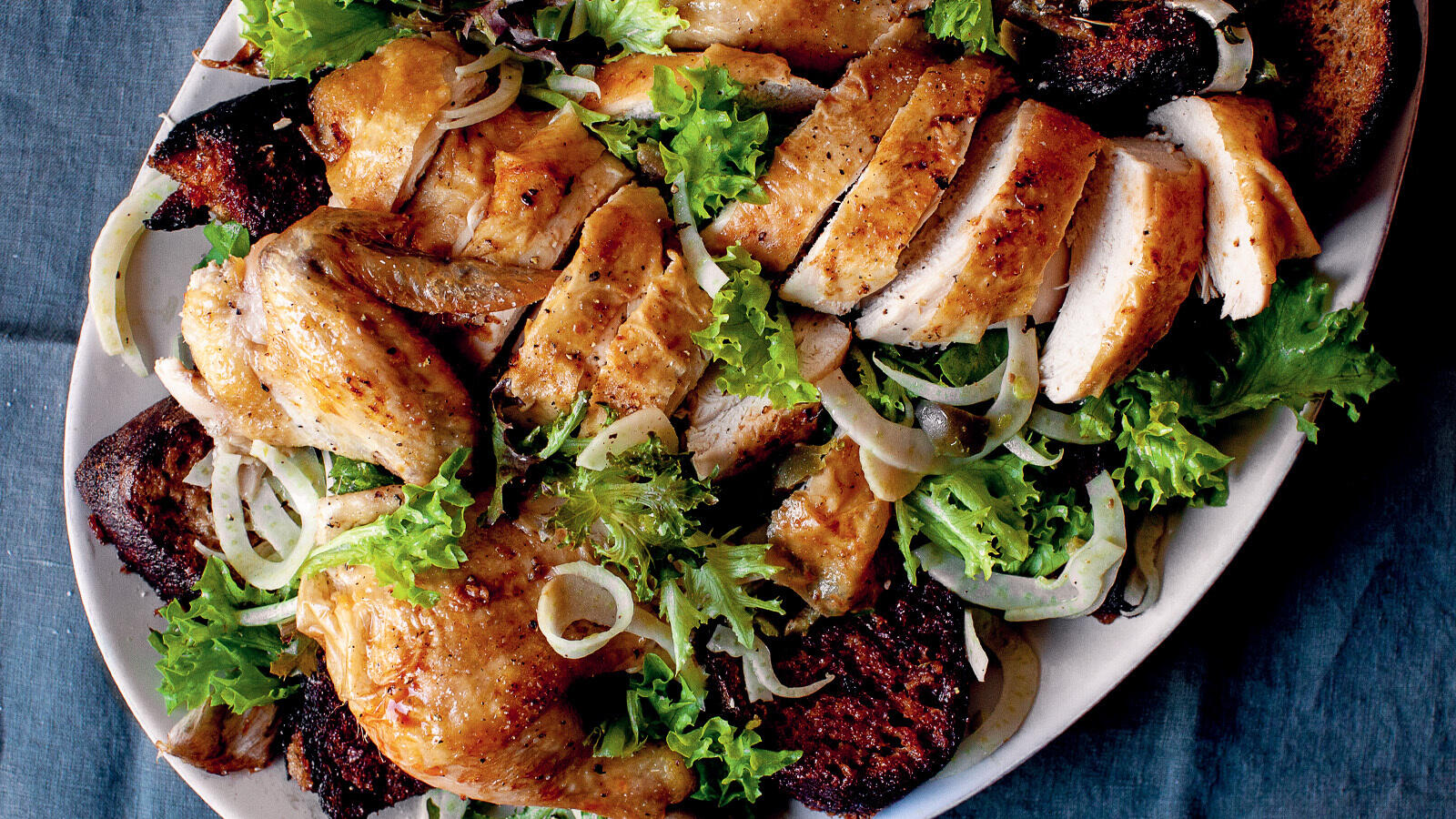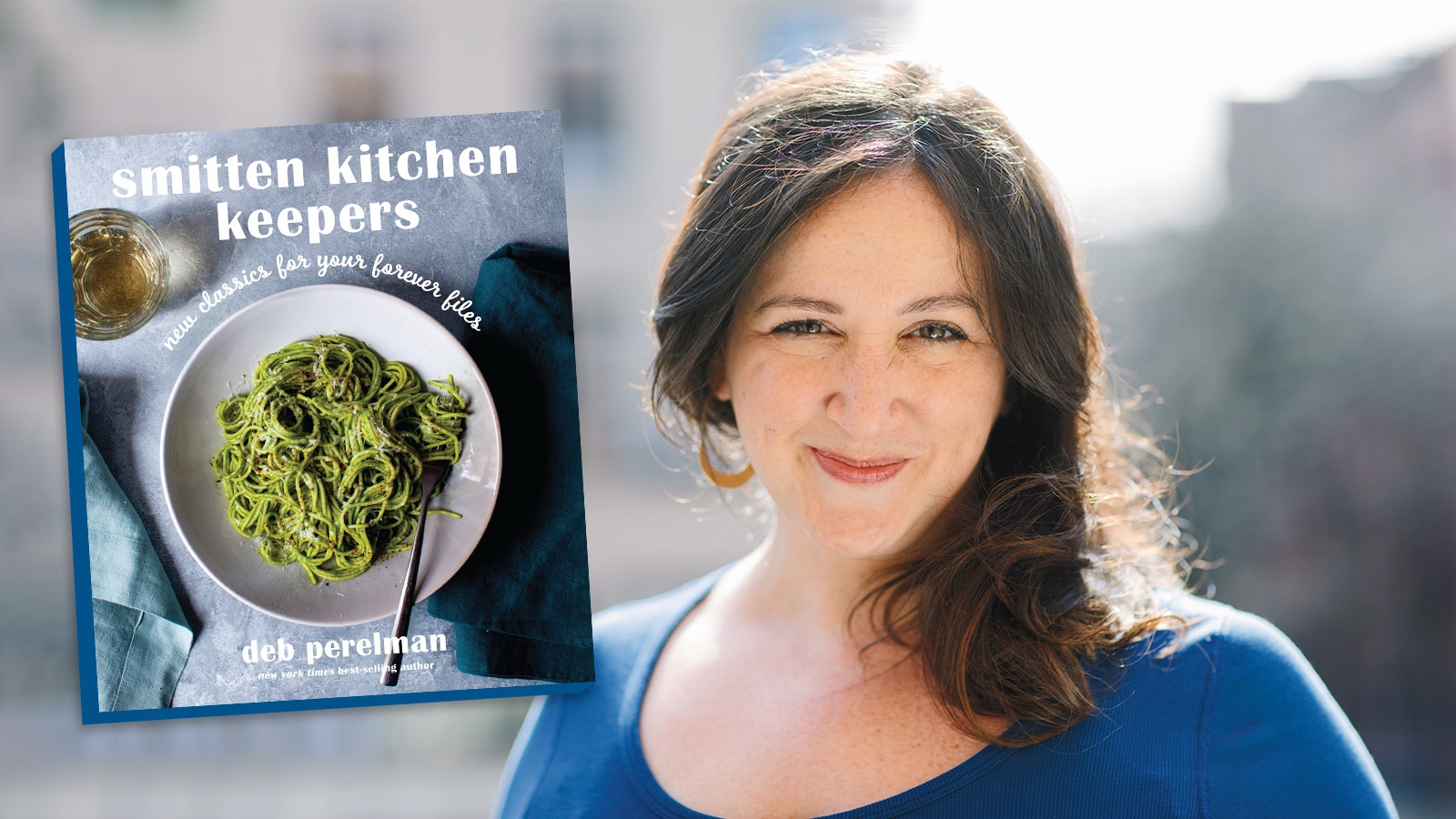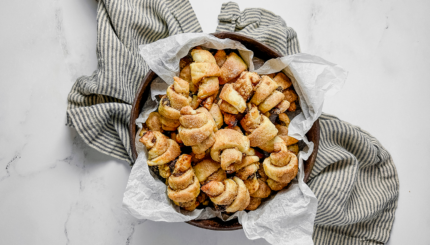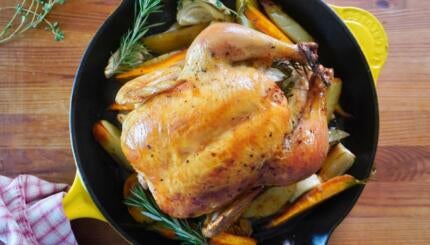You won’t find recipes for classic Eastern European Jewish dishes like gefilte fish, cholent or matzah ball soup in food writer Deb Perelman’s latest cookbook “Smitten Kitchen Keepers.” (Although there is an inspired recipe for a bialy babka, which New York’s Breads Bakery, known for its babkas, just added to its product line in collaboration with Perelman.) But her Jewish culinary roots peek through in many of the 100 recipes.
Perelman, a New York Times bestselling cookbook author and one of the most popular food bloggers in the United States, has 1.6 million followers on her Smitten Kitchen Instagram. This is her third book, which she dedicates to her father, Michael Rothberg, who encouraged her to write it. A Bronx-born New Yorker and child of Eastern European Jewish immigrants, Rothberg died in 2018.
Perelman credits him as the muse behind a number of the book’s recipes. She knows, for example, that he would have loved her turkey meatloaf for skeptics (he appreciated a good meatloaf, she told The Nosher), and her tangy baked eggplant and couscous, she writes, has been “welcomed on our High Holiday table, and is a dish he would have loved.” Perelman deems its sweet and sour flavor comforting — and classically Jewish.
The recipe that she unequivocally relates to her father and his Bronx childhood is for challah cheesecake buns. Her dad and his friends would often visit the corner deli after school for cream cheese and jelly sandwiches. Those were the days, he told Perelman, when “nobody balked at putting a 1-inch-thick slab of cream cheese on a sandwich.”
The Nosher celebrates the traditions and recipes that have brought Jews together for centuries. Donate today to keep The Nosher's stories and recipes accessible to all.
The pastries — best served as breakfast buns — are made with an egg-y, yeast-y challah dough, which is stuffed with raspberry jam and cream cheese, and sprinkled with poppy seeds.
It is Perelman’s rare ability to take a pedestrian dish, or one that has been made the same way for years, like the cream cheese and jelly sandwich, and dissect and rework it into something new, creative and luscious. She attributes this skill to being “a picky eater as a kid and still picky in some ways.”
When there was a dish that she didn’t like — such as roast chicken that was too dry or sweet potato fries that were too bland — she would set about coming up with a fresh preparation that satisfied her. Perelman, who describes herself as “obsessive,” will still spend countless hours coming up with the best way to braise winter squash, or test and retest her recipe for roast chicken and croutons endlessly.

Perelman’s mother, a child of German Jewish immigrants who was raised in a large German Jewish community in Jackson Heights, Queens, also inspired a recipe. Her favorite cake, which Perelman’s grandparents often bought from local German bakeries, was Bienenstich (Bee Sting). Perelman’s bee sting bars are a fresh take on this traditional German bake. The recipe preserves the original’s honeyed almond topping, but sets it on a buttery shortbread cookie. The bars are “friendlier to a cookie tin,” says Perelman, though they taste similar to the cake of her mother’s childhood.
Since honey is a central ingredient, it could, says Perelman, work for Rosh Hashanah, to usher in a sweet year. But, she cautions, ever-thoughtful of her readers, “not everyone wants a dairy dessert for that holiday, and this recipe has butter in it.”
Although many of the recipes in the book mix meat with milk, a combination that is forbidden under Jewish dietary laws, Perelman specifies that one could use milk of “any kind.” So cozy chicken and dumplings — inspired more by Southern cooking than a take on chicken soup and matzah balls — can be made with plant-based milk, rather than the specified cow’s milk. Oat milk, “which has a nuttiness and richness that I [Perelman] really like,” would work best.
Perelman, however, does not make a habit of straying from dairy. Her love for sour cream, she says, “came through a Semitic line, as does my belief in the versatility of challah.”
In a nod to that “Semitic line,” Perelman’s recipe for tomatoes with cottage cheese and bagel seeds is an homage to her late grandmother Helen, who ate a scooped-out bagel filled with cottage cheese and topped with a slice of tomato every morning for breakfast. The recipe layers full-fat cottage cheese under halved cherry tomatoes, which are topped with salt, pepper and sesame and poppy seeds combined with minced onion and/or garlic.
In addition to the “Jewish-ish stuff in the cookbook that reflects what I [Perelman] grew up with,” Perelman includes a paired-down falafel recipe that does not require a lot of oil, which she encourages you to stock your freezer with “for a future falafel night.”
Of the 100 recipes in this wide-ranging collection of “keeper recipes,” which is her favorite?
“My favorite recipe changes literally every day by what I am craving,” Perelman said. “Cook what you feel like cooking when you feel like cooking it. It makes cooking 100% more enjoyable.”



